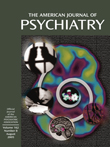This is a report of the findings of the Swedish Council on Technology Assessment in Health Care in the area of alcohol and substance abuse. The council evaluates the medical and scientific world literature on the technology and methods of intervention used in delivering health care. For the effort reported in this book, a team of 13 investigators performed a comprehensive literature search of articles published between the 1950s and 2000, rated more than 1,600 studies for quality, and relied for their conclusions on those which were designed for validity, i.e., were randomized and controlled. The investigators’ approach, including methods, selection criteria, and search strategies, is described. They relied on DSM-IV and ICD diagnostic criteria, and their fundamental questions were whether a treatment was better than nothing, more effective than other methods, suited to certain types of patients, effective in dually diagnosed patients, or required an inpatient setting. The bulk of the pages are devoted to the presentation, in tabular form, of their findings, but they also summarize their findings and their conclusions. They provide a glossary, an appendix describing their quality checklist, and an appendix on their guidelines for measuring effect size.
First, they looked at prevention of alcohol problems, meaning short-term interventions such as motivational talks by a primary care provider. Then they tried to answer the question of how effective psychosocial treatment for alcohol dependence is, comparing different approaches and the conditions under which the interventions were delivered. The third chapter reviews the treatment of alcohol withdrawal syndrome with medications as shown in randomized, controlled studies comparing benzodiazepines, anticonvulsants, β blockers, α2 agonists, magnesium, calcium antagonists, antipsychotics, and thiamine. The fourth chapter is on pharmacotherapy for alcohol dependence. The aversive drug disulfiram is compared with psychotropics and with the anticraving agents acamprosate and naltrexone. There is a chapter on the long-term course of alcohol and chemical dependence. This one is different from the other chapters in that, rather than surveying a vast amount of data from a large number of studies, it reviews some choice epidemiologic and longitudinal studies of alcohol and heroin dependence in order to provide context for the evaluation of the randomized clinical trials elsewhere in the book.
In chapter 6, the authors report the results of their scrutiny of 112 studies to compare supportive, educational, and psychotherapeutic interventions for drug dependence. They divided psychotherapy into psychodynamic, cognitive, and family therapies, and they compared outcomes with inpatients and outpatients. They addressed a set of seven questions, the first of which was whether these interventions are effective at all. The following chapter deals with pharmacotherapy for nonrapid, rapid, and ultra-rapid opioid withdrawal. The investigators reviewed 33 studies with more than 2,000 patients comparing clonidine, methadone, buprenorphine, doxepin, and other adrenergic agonists with placebo.
Chapter 8 is about pharmacotherapy for opioid dependence. The authors report findings of studies comparing the agonists methadone, l-alpha-acetylmethadol, and buprenorphine with the antagonist naltrexone as well as studies comparing the agonists with one another. Chapter 9 is on pharmacotherapy for cocaine dependence. Cocaine inhibits dopamine reuptake in the brain. Researchers have tried antidepressants, dopamine agonists, anticonvulsants, and buspirone without encouraging results. The same is true for methamphetamine dependence, although there is very little literature on this dependence. Finally, the investigators reviewed studies of the effect of substance abuse on the fetus and the neonatal infant. They summarize the literature on alcohol-induced fetal injuries and explore the question of using endpoints short of fetal alcohol syndrome in evaluating treatment.
In the foreword, Henry Kranzler, M.D., a prominent psychiatrist, states that this book should be required reading for those who work with alcohol- and substance-abusing patients. I would not go that far, but there is an abundance of valuable information gathered between its covers.

